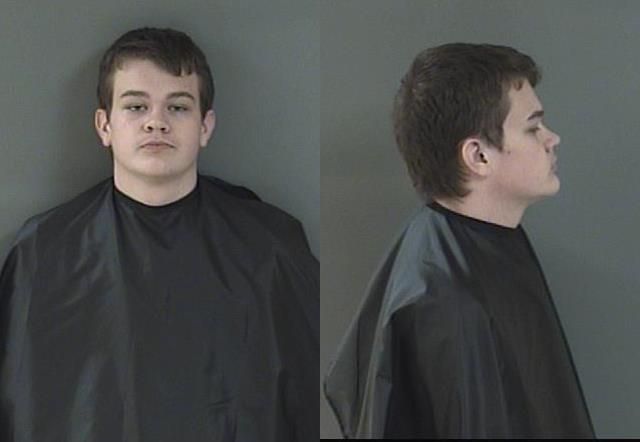As 20-year-old Elisha Martin sits in an Indian River County jail cell awaiting trial on first-degree murder for the February 2019 shooting death of 16-year-old Sebastian River High School football player Logan Spencer, Martin’s attorneys are seeking to have several key pieces of evidence tossed out.
The defense is challenging two warrants obtained by Sheriff’s Office detectives to enter and search Martin’s residence on Carnival Terrace in Sebastian. The first search warrant was limited to drugs and drug-related items. That warrant was sought after a deputy said he smelled marijuana at the home. While serving that warrant, detectives saw items possibly related to their open homicide case.
So deputies obtained a second, expanded search warrant to seize a handgun and an iPhone from the same Sebastian home. Martin’s lawyers are challenging the probable cause leading to the first warrant, which means the second warrant – stemming from items discovered in the course of conducting the first search – presumably would have never been applied for.
The homicide investigation tracked Spencer’s travels in the days and hours before he was reported missing, and police say Martin was the last person to see Spencer alive because surveillance video shows Martin picking Spencer up from Spencer’s girlfriend’s house in his silver Chrysler 300.
Martin, the son of a longtime Vero Beach Police Department sergeant who, after retiring, went to work for the Sheriff’s Office, is represented by two seasoned defense attorneys with the Office of Criminal Conflict and Civil Regional Counsel in Fort Pierce.
Martin’s defense was farmed out to that agency because his case caused a conflict of interest involving a separate person the public defender represents, court records say. To defend Martin, the public defender might have needed to incriminate the other person.
The office’s Managing Attorney Donald Chinquina and Assistant Regional Counsel Jerome Stone filed a motion in August 2020 for Judge Dan Vaughn to sever the drug charges against Martin from the first-degree murder charge. So far, that motion has not been granted. Then in January the defense team filed a separate motion to have evidence obtained via both warrants tossed out.
The evidence in question includes a Colt .38 caliber handgun with six rounds of ammunition, 36 grams of TPW or medical-type marijuana in a bag, 5 grams of marijuana in a bag, 1 gram of loose marijuana, an iPhone 6s and some documents.
Chinquina and Stone say the deputies’ accounts of events that happened at Martin’s home when they showed up to question him are not consistent. As part of the homicide investigation, detectives had staked out Martin’s home. When Martin arrived in the silver Chrysler 300, the detectives approached the house to question Martin in the driveway.
One deputy said he “could smell a strong odor of raw, not smoked marijuana coming from the interior of the garage.” They knocked on the front door and the same deputy again said he smelled raw, unsmoked marijuana at the front door.
Almost all the marijuana deputies found was sealed in plastic Ziplock-type bags in bedrooms on the opposite side of the 3,200-square-foot house, so the defense attorneys argue that it would be pretty tough to smell that marijuana in sealed bags from the open garage door, or the front door.
“Police used this phantom smell of marijuana as a basis to obtain entry into the house, because they did not have a basis to enter the home to look for evidence related to the homicide,” the defense argued.
If true, the defense says this constitutes a violation of Martin’s civil rights. Case law, the defense argues, would require the court to remove the detective’s allegedly “false statements” from the affidavit used to apply for the search warrant and then to judge whether or not the warrant should be granted based upon the remaining information. If the warrant no longer stands up to the court’s test, the evidence obtained should be excluded, and not be presented at trial, the defense said.
Deputies arrested Martin on the charge of possession of marijuana with intent to distribute, then added a charge for the murder of Spencer six days later. Eight months later the case was brought to a grand jury, which indicted Martin on first-degree premeditated murder – a charge which requires the review of a grand jury because in Florida it’s punishable by the death penalty.
If there was insufficient probable cause for the first warrant, and detectives had not gathered enough evidence at the time to get a search warrant related to the homicide, they would not have found what ballistics testing alleges to be the murder weapon, and what turned out to be Spencer’s iPhone, which was not found with his body in Fellsmere. Court records show Spencer was shot in the back of the head, execution style, and dumped in a wooded lot near the Stick Marsh.
Martin admitted to picking Spencer up late that night, and giving him a ride out to Fellsmere where Spencer was scheduled to confront some other men. Martin said he circled around to pick Spencer up but then left, traveling north on Babcock Street to Brevard County.
Without the phone and the firearm, prosecutors would still have statements from numerous people – mostly with criminal records – who claim Martin told them he killed Spencer, or told them he had committed a murder.
But the first-degree murder case would be a whole lot tougher to prove beyond a reasonable doubt. Martin and Spencer had been friends, but police say Martin’s motive was that he believed Spencer had stolen his cash.

